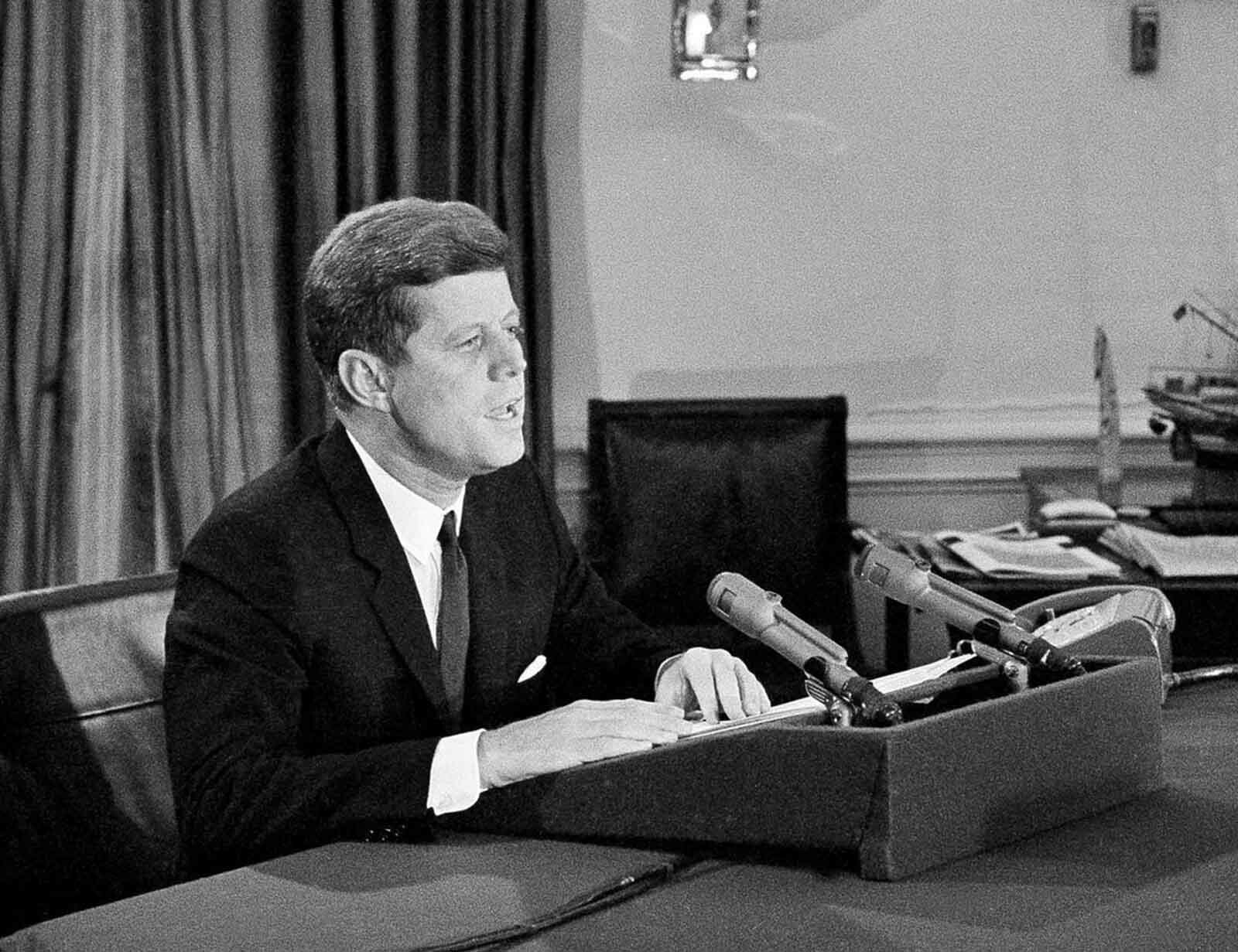14 Days in October and a Christmas Carol

On October 14, 1962, U.S. reconnaissance flights over Cuba detected photographic evidence of Soviet medium-range nuclear missiles being assembled for installation. Only 90 miles from the coast of Florida, the threat they posed to America was of immediate concern and thus the Cuban Missile Crisis, a tense standoff between two nuclear superpowers had begun. On the 22nd of October, President Kennedy announced to the nation via a television broadcast, the appearance of the missiles, his decision for a naval blockade of Cuba and a resolve to use military force if necessary to neutralize the threat. Following this public announcement people around the world awaited nervously for the Soviet response. A crucial moment came when the Soviet Navy tried to breach the blockade but were turned away. The fear of nuclear war was palpable, some Americans began to hoard food and gasoline. I was 10 years old, at the time, and I remember having drills in our grade school class rooms, where we pulled down the shades on the windows and sheltered under our desks. After 2 weeks of some intense moments the crisis was resolved. Russia removed their missiles, we agreed not to invade Cuba and we secretly agreed to remove our missiles from Turkey.
Married songwriting duo, Gloria Baker and Noel Regney were asked, by Columbia Records to compose a simple B -side Christmas Song. The intense political climate and the threat of nuclear war inspired them to write a plea for peace. Columbia eventually turned it down and Mercury Records picked it up, and made it into a A-side song. "I had thought that I'd never write a Christmas song: Christmas had become so commercial. But this was the time of the Cuban Missile Crisis. In the studio, the producer was listening to the radio to see if we had been obliterated," said Regney in an interview for the Ridgefield Chronicles. The song was released and had become only a regional hit that November. It wasn't until the following year when Bing Crosby recorded it that it became a global hit. By then the original meaning had been lost. The name of the song: "Do You Hear What I Hear," and now you know the rest of the story.


